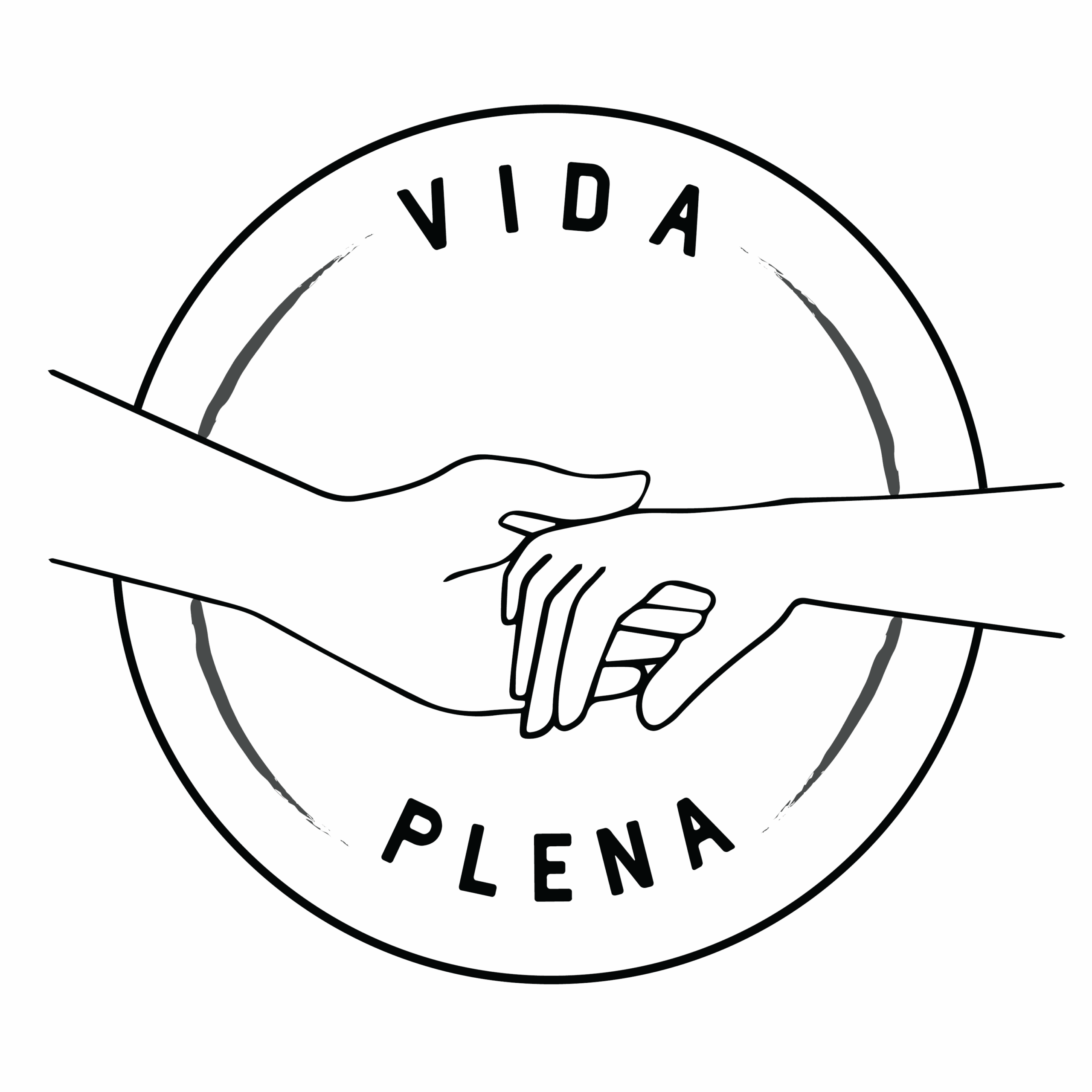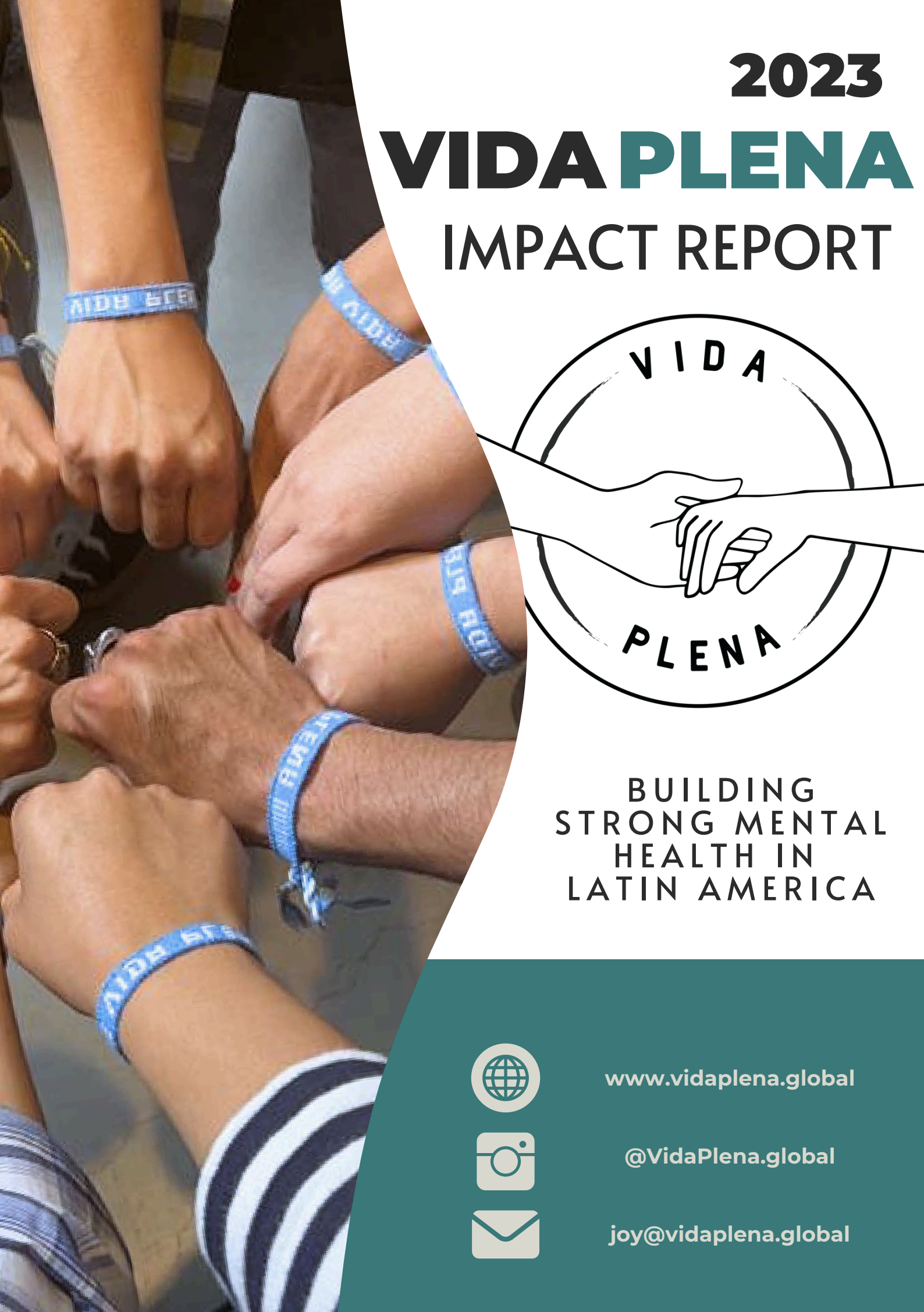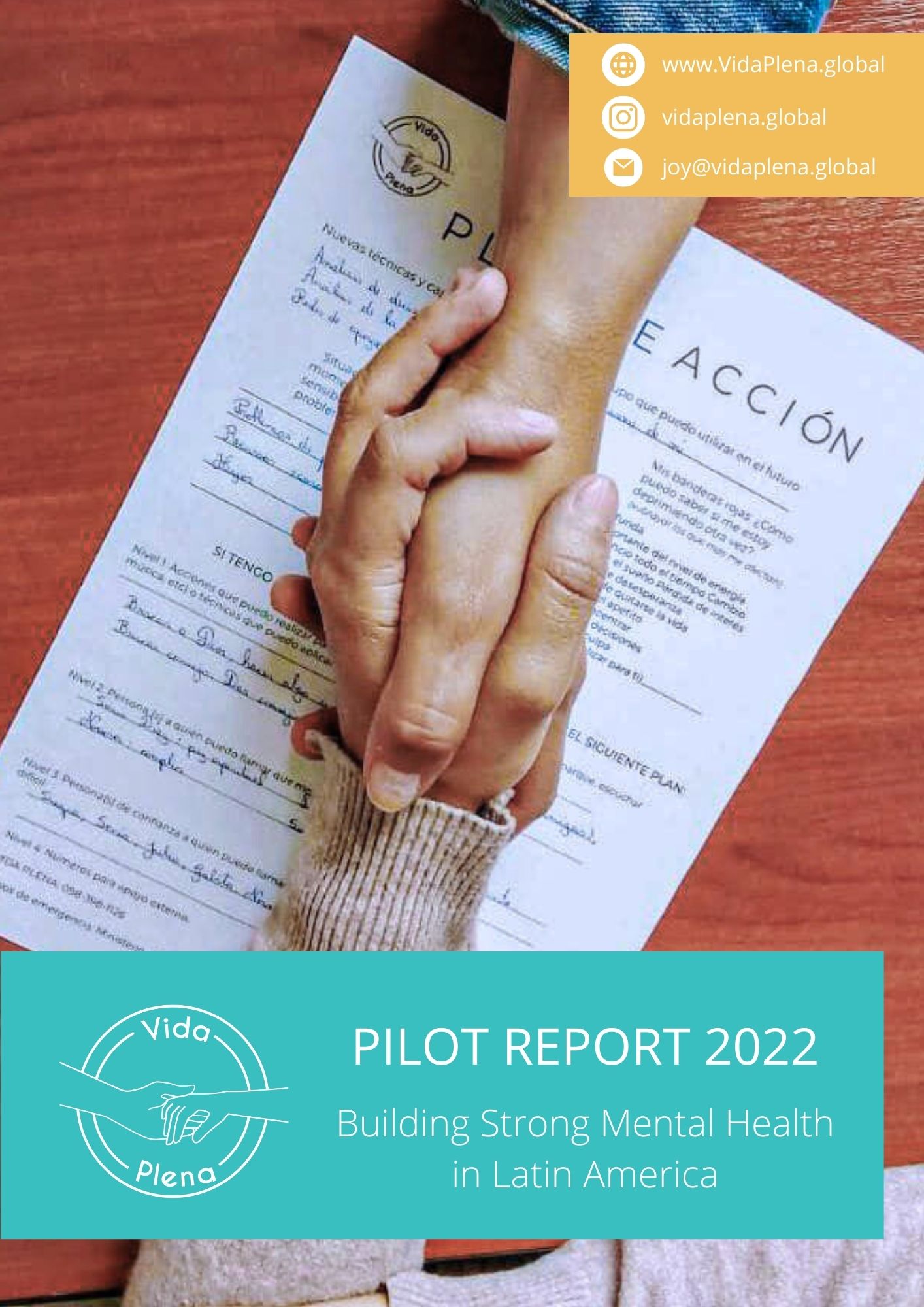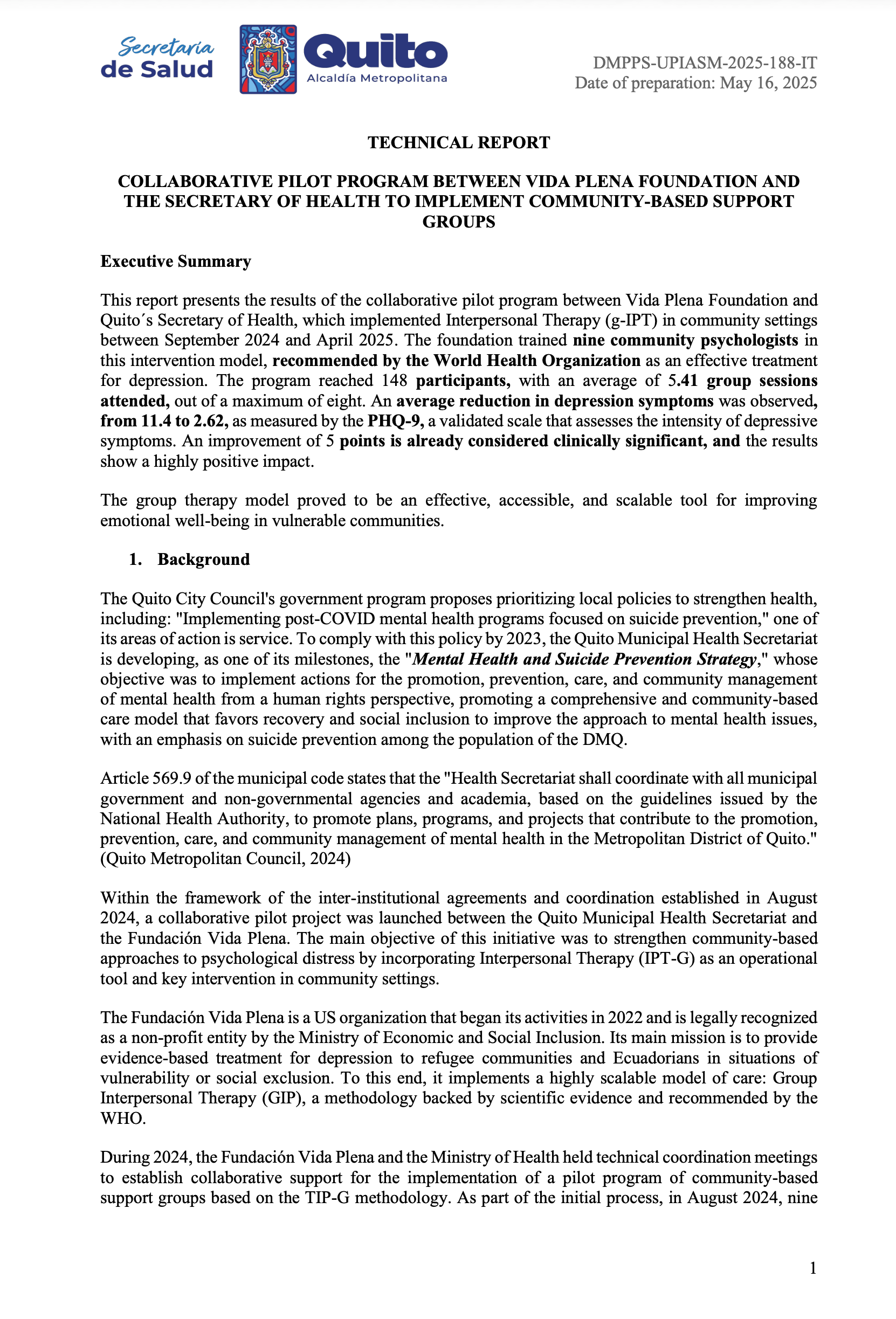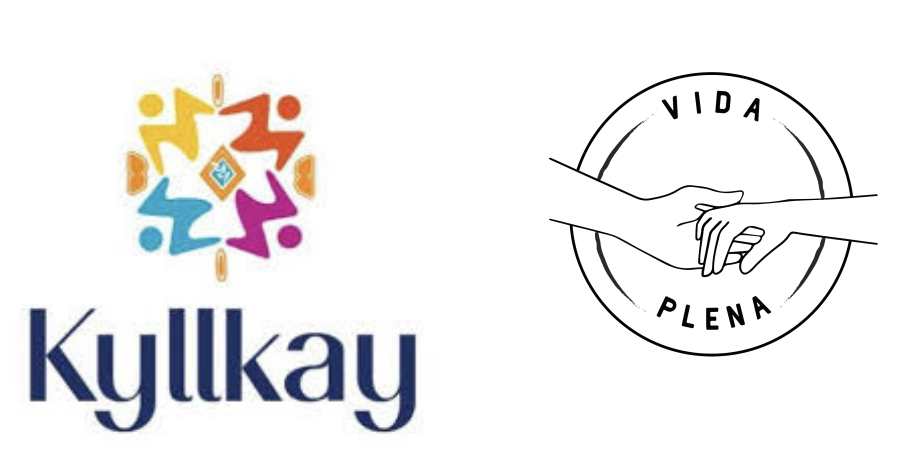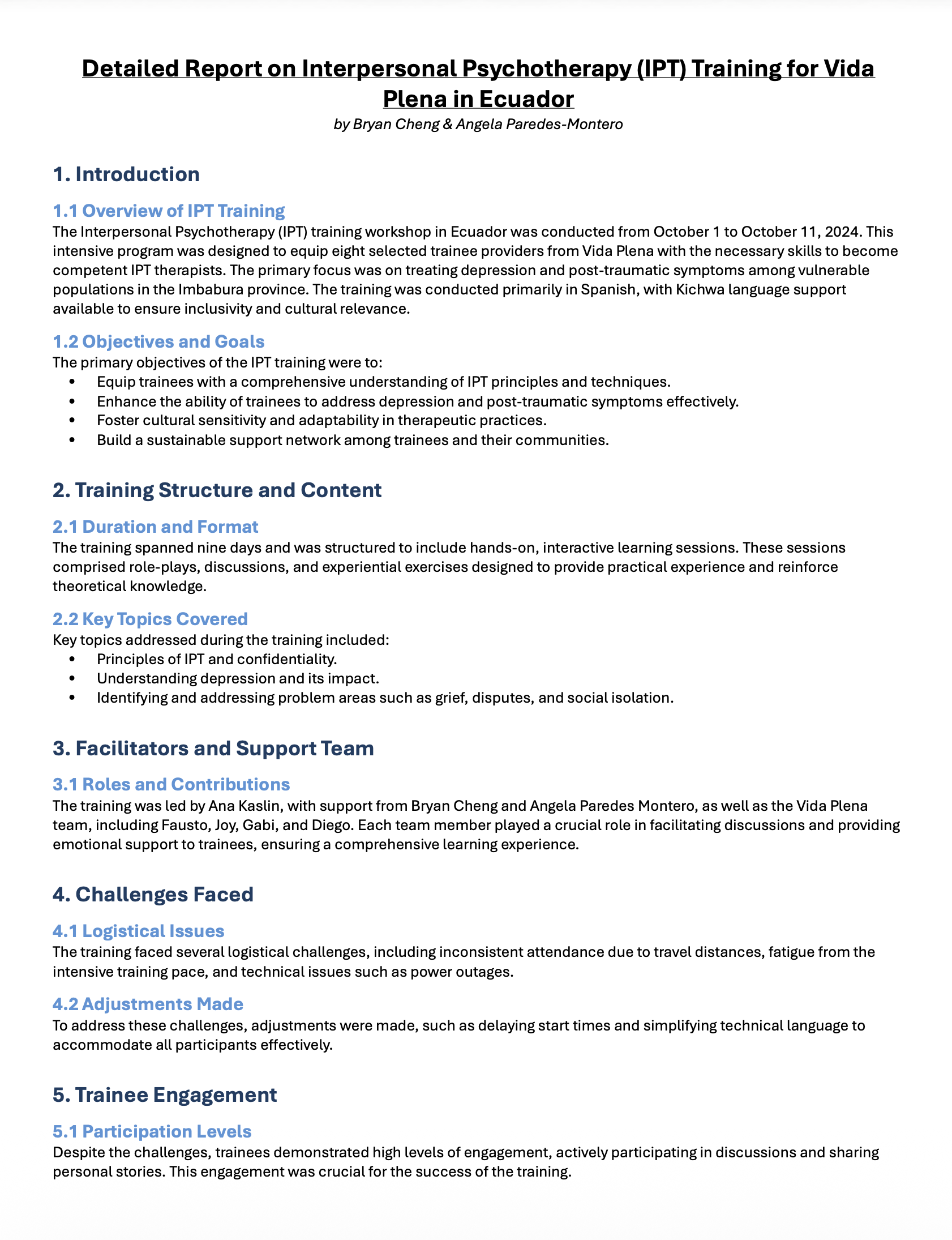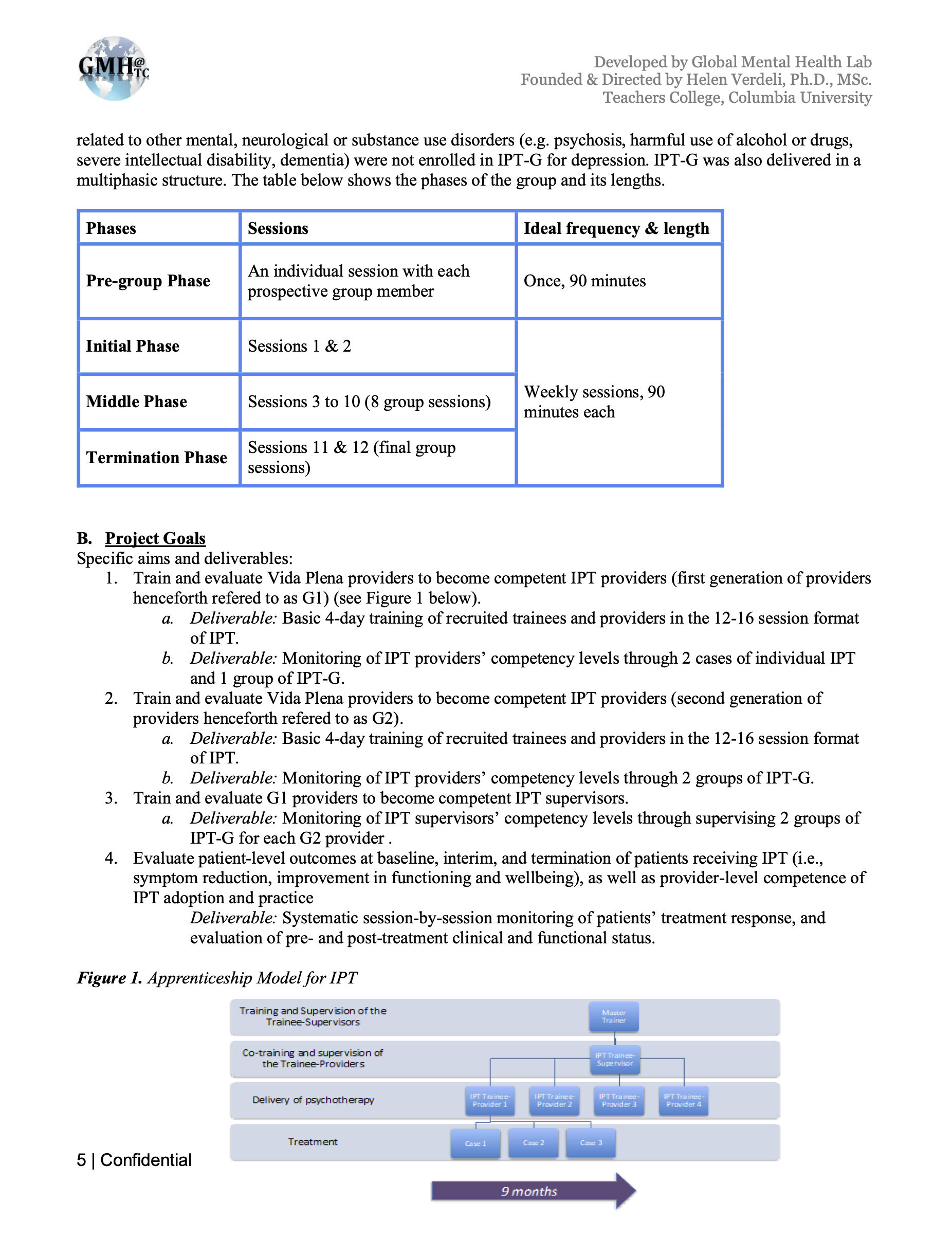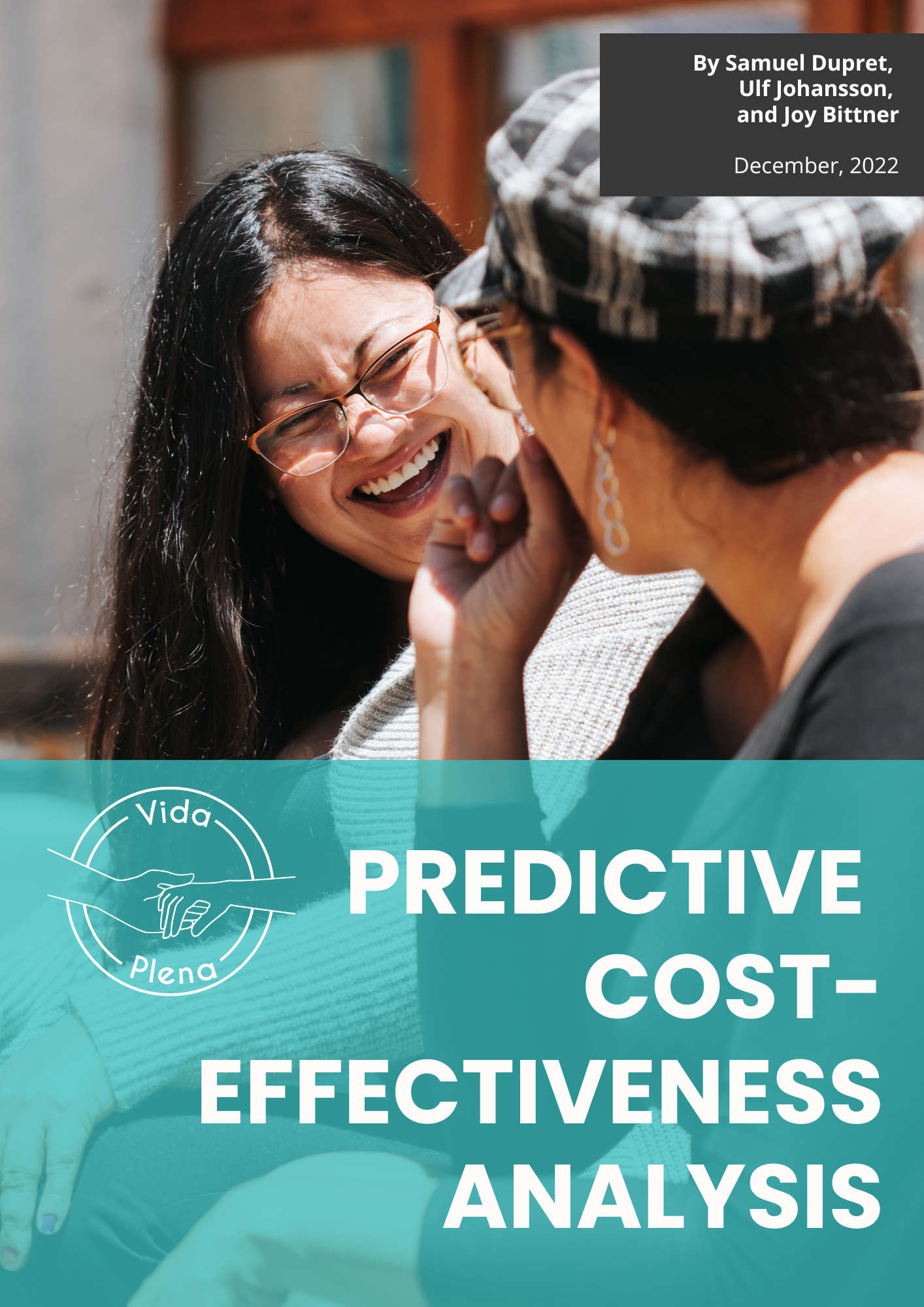Annual Impact Report 2023
2023 was our first full year. It was a year of learning, of building a solid foundation, and proving that our therapy model does in fact work at a scale beyond the initial pilot.
This is our first annual impact report. Our attempt to capture through charts and graphs bits of crucial evidence about who we’ve helped and where we can continue to improve. But beyond the numbers, it was especially important this first year that we put into practice our three core values; the deeper ‘how’ of the work that we do.
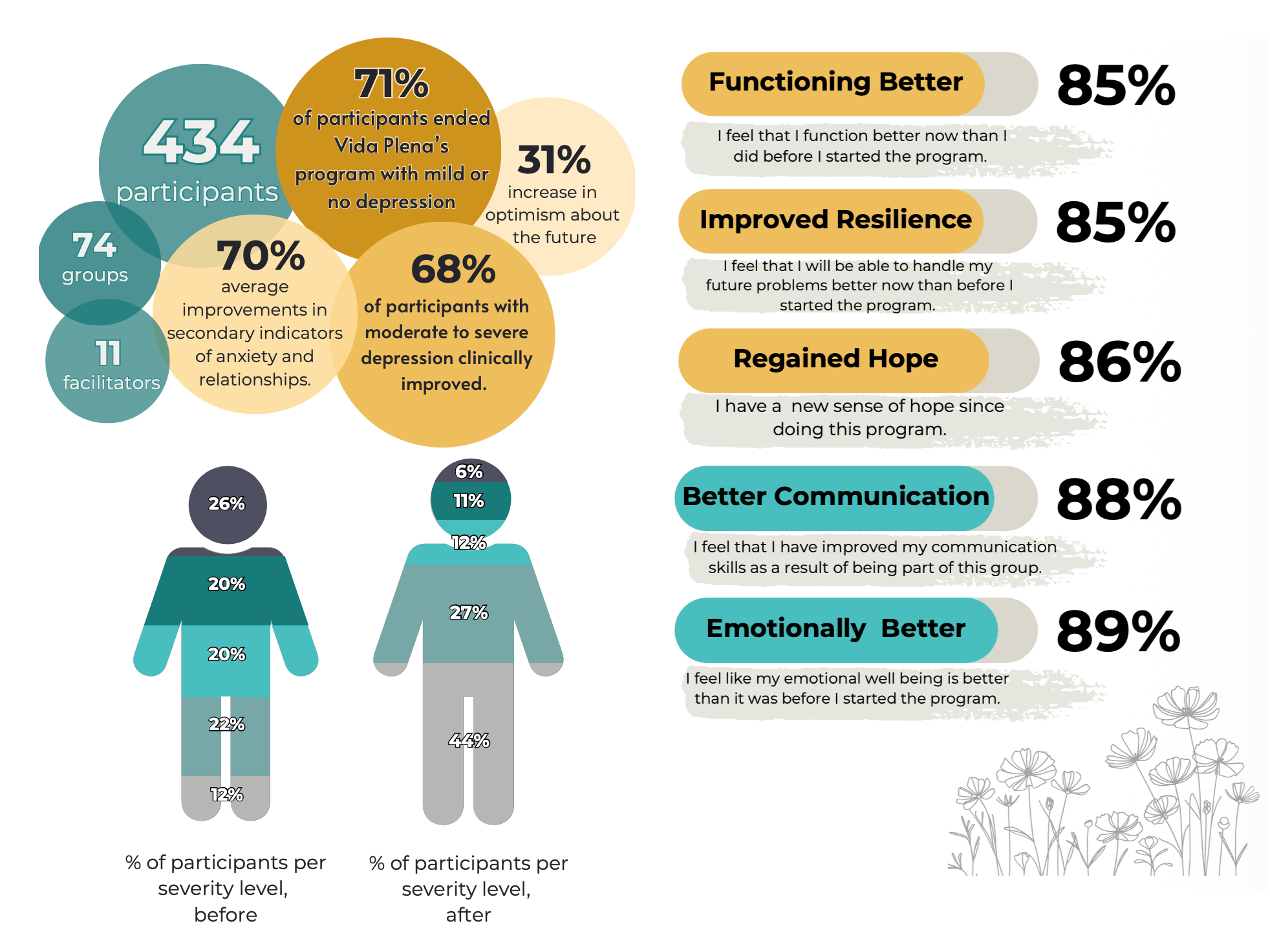
Pilot Results 2022
In 2022 Vida Plena collaborated with the Columbia University Global Mental Health Lab to conduct a pilot program to test the feasibility of implementing g-IPT in Ecuador.
As the first organization to implement WHO-recommended group interpersonal therapy for depression in Latin America, we are excited that our pilot showed positive outcomes in all key indicators.
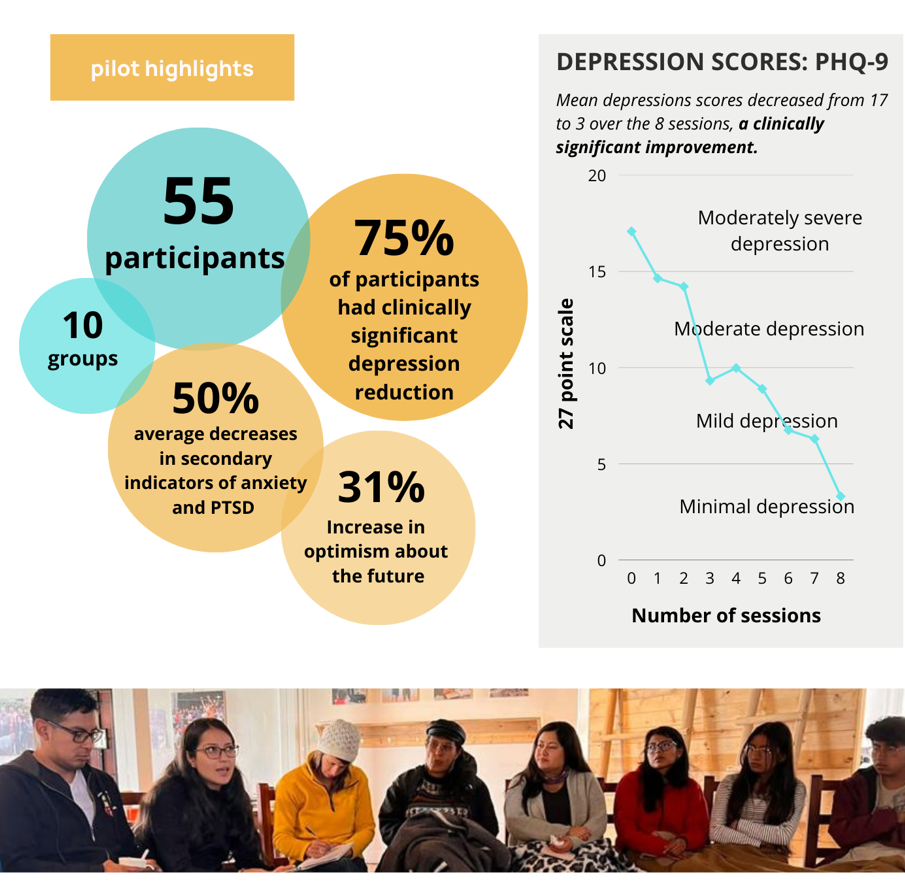
Collaborative Pilot Program Between Vida Plena Foundation and The Secretary of Health to Implement Community-Based Support groups
This report presents the results of the collaborative pilot program between Vida Plena Foundation and Quito´s Secretary of Health, which implemented Interpersonal Therapy (g-IPT) in community settings between September 2024 and April 2025.
A Pratical Guide for Addressing Mental Health in the Otavalan Kichwa Population
The brochure is based on a qualitative and ethnographic approach, designed to understand the perceptions, experiences, and cultural practices related to mental health in the Kichwa community of Imbabura. It aims to explore the complexity of the concepts of health, illness, and well-being from an indigenous perspective, recognizing the importance of their ancestral knowledge. (folleto en español)
Detailed Report on Interpersonal Psychotherapy (IPT) Training for Vida Plena in Ecuador
The Interpersonal Psychotherapy (IPT) training workshop in Ecuador was conducted from October 1 to October 11, 2024. This intensive program was designed to equip eight selected trainee providers from Vida Plena with the necessary skills to become competent IPT therapists. The primary focus was on treating depression and post-traumatic symptoms among vulnerable populations in the Imbabura province. The training was conducted primarily in Spanish, with Kichwa language support available to ensure inclusivity and cultural relevance.
Assessing the Feasibility and Effectiveness of Training Clinicians in Interpersonal Psychotherapy in
Ecuador
Despite the difficult circumstances and high comorbidity (including suicidal ideation), results of this program indicate that host Ecuadorians and Venezuelan refugees responded well to IPT. These results point to the high acceptability and feasibility of this approach in treating depression and other common mental disorders in this setting. They are especially significant given that the social determinants of depression in the hosts and refugees’ lives in Ecuador not only did not improve during the life of the project but have been deteriorating, with enormous added burdens imposed by the pandemic.
Predictive Cost-Effectiveness Analysis
Read our Predictive Cost-Effectiveness Analysis for the pilot program.
Will we achieve all the good we hope to? Prior to the pilot, we wanted to put together our best guesses of our future impacts through a calculation called a cost-effective analysis. These types of reports are especially useful to potential donors who want to be able to compare programs – sort of like an investor looking at a company’s prospectus.
In our analysis, we decided to focus on a type of public health metric called a WELLBY (wellbeing-adjusted life year) which is used to compare people’s own evaluation of different illnesses and disabilities on their lives.
Using this metric, we estimate it will cost $17 to improve a person’s life by one WELLBY. As this number doesn’t mean much by itself, a commonly used point comparison is the impact that can be achieved by simply just giving someone the same money. Many people consider this approach to be the baseline for cost-effectiveness comparisons. In this evaluation, we expect that Vida Plena is 8 times more cost-effective than GiveDirectly– which we are proud to say is something considered to be quite a good value for people who carefully study these metrics.
